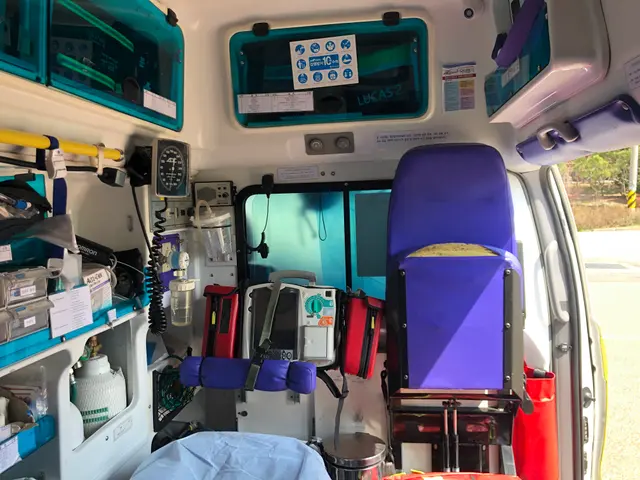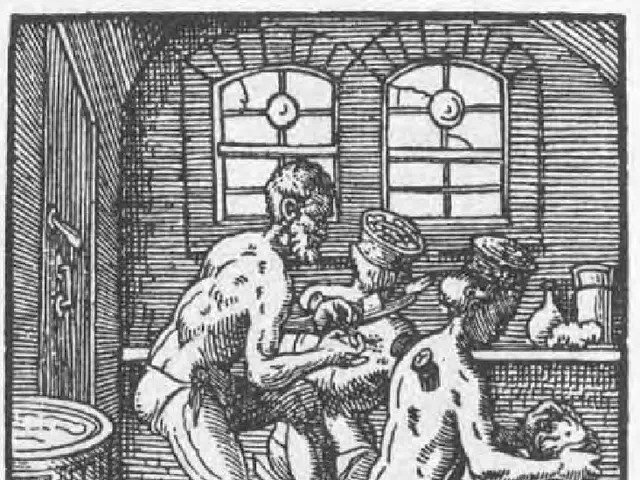Unrelenting loop between adult Attention Deficit Hyperactivity Disorder (ADHD) and sleep deprivation
In a study conducted by researchers from the University of Southampton and the Netherlands Institute for Neuroscience, it has been found that insomnia significantly worsens symptoms and quality of life in people with Attention Deficit Hyperactivity Disorder (ADHD).
The study, led by Dr. Sarah Chellappa, an associate professor of psychology at the University of Southampton, and Professor Samuele Cortese, also from the University of Southampton, looked at data from the Netherlands Sleep Registry and focused on 1,364 participants.
The findings suggest that ADHD traits are associated with worse depression and more severe insomnia. Insomnia could be the "missing link" that connects ADHD with depression and poor life quality.
Insomnia significantly worsens symptoms and quality of life in people with ADHD by intensifying attention difficulties, emotional dysregulation, and life dissatisfaction. The severity of insomnia—not just general sleep quality or circadian rhythm shifts—directly correlates with reduced life satisfaction and exacerbation of ADHD traits, especially in adults.
People with ADHD often experience a range of sleep disturbances including difficulty falling and staying asleep, delayed sleep phase (going to bed very late), restless leg syndrome, sleep talking, and more. These sleep problems compound ADHD impairments in executive functioning such as memory, concentration, and problem solving.
Regarding supplements and treatments to improve sleep and quality of life for individuals with ADHD, common approaches include stimulant medications, bright light therapy, and melatonin. Stimulant medications, paradoxically, can help improve sleep by controlling ADHD symptoms that disrupt sleep. Bright light therapy is mentioned as a potential method to improve sleep-wake cycles and reduce insomnia symptoms in ADHD. Melatonin, a hormone produced by the brain to regulate sleep and wake cycles, may help adults with sleep disorders and ADHD.
Some people with ADHD may benefit from supplements like melatonin, which is often used to regulate circadian rhythms and improve sleep onset in ADHD. However, specific recommendations for ADHD-related insomnia supplements were not directly cited in the study.
Addressing comorbidities such as restless leg syndrome can also involve supplements like iron or magnesium, though specific recommendations for ADHD-related insomnia supplements were not directly cited in the study.
Overall, treatment often targets both ADHD symptoms and sleep problems simultaneously to break the cycle of insomnia worsening ADHD-related impairments. Improving insomnia severity is key to enhancing overall life satisfaction for those with ADHD.
Summary:
- Insomnia significantly worsens symptoms and quality of life in people with ADHD by intensifying attention difficulties, emotional dysregulation, and life dissatisfaction.
- Stimulant medications, bright light therapy, and melatonin are common approaches to improve sleep and quality of life for individuals with ADHD.
- Treating insomnia can partly mediate better quality of life and reduce ADHD symptom impact.
- Always consult a doctor before adding a new supplement to your daily regimen, particularly if you are taking medications for ADHD or other conditions.
- The study focused on questions about ADHD traits, insomnia, circadian factors, depression, and quality of life.
- The study suggests that insomnia could be a significant factor linked to depression and poor life quality in individuals with ADHD.
- Stimulant medications, bright light therapy, and melatonin are commonly used to improve sleep and overall quality of life for people diagnosed with ADHD.
- Melatonin, a hormone that regulates sleep, may potentially help adults with sleep disorders and ADHD.
- Given the complexities of ADHD and its associated comorbidities, it's essential to consult a healthcare professional before introducing any new supplements to your daily regimen.




